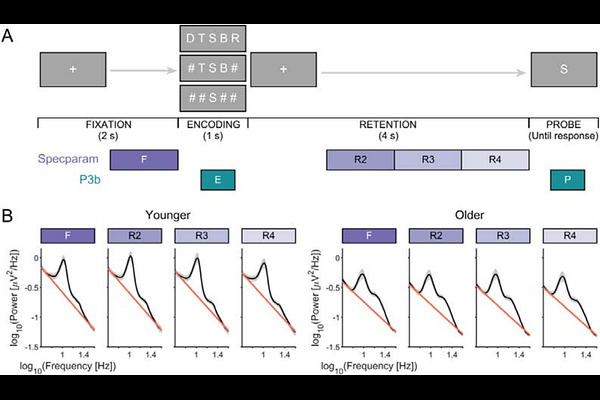The relationship between task-related aperiodic EEG activity, neural inefficiency and verbal working memory in younger and older adults

The relationship between task-related aperiodic EEG activity, neural inefficiency and verbal working memory in younger and older adults
Sghirripa, S.; Goldsworthy, M. R.; Graziano, A.
AbstractWorking memory (WM) decline in ageing may be related to increases in neural noise, potentially reflected in the EEG aperiodic exponent. We reanalysed previously published data to investigate age-related differences in the aperiodic exponent during verbal WM and its relationship with neural inefficiency. EEG was recorded from 24 younger (18-35 years) and 30 older adults (50-86 years) during a modified Sternberg task with 1-letter, 3-letter, and 5-letter load conditions. Younger adults consistently demonstrated steeper aperiodic slopes than older adults, though this difference was less pronounced in frontal regions during retention. Unexpectedly, both age groups showed decreased (i.e. flattened) aperiodic exponents during retention relative to fixation, with minimal load-dependent effects. Notably, the relationship between task-related exponent changes and WM performance was complex and dependent on the exponent at fixation, particularly in older adults. Finally, flatter exponents during fixation and late retention were associated with greater neural inefficiency during stimulus processing, reflected by increased P3b amplitudes without corresponding WM performance improvements. These findings suggest that flatter exponents are associated with less efficient neural processing and that older adults flexibly modulate their aperiodic exponent during retention to support WM performance.